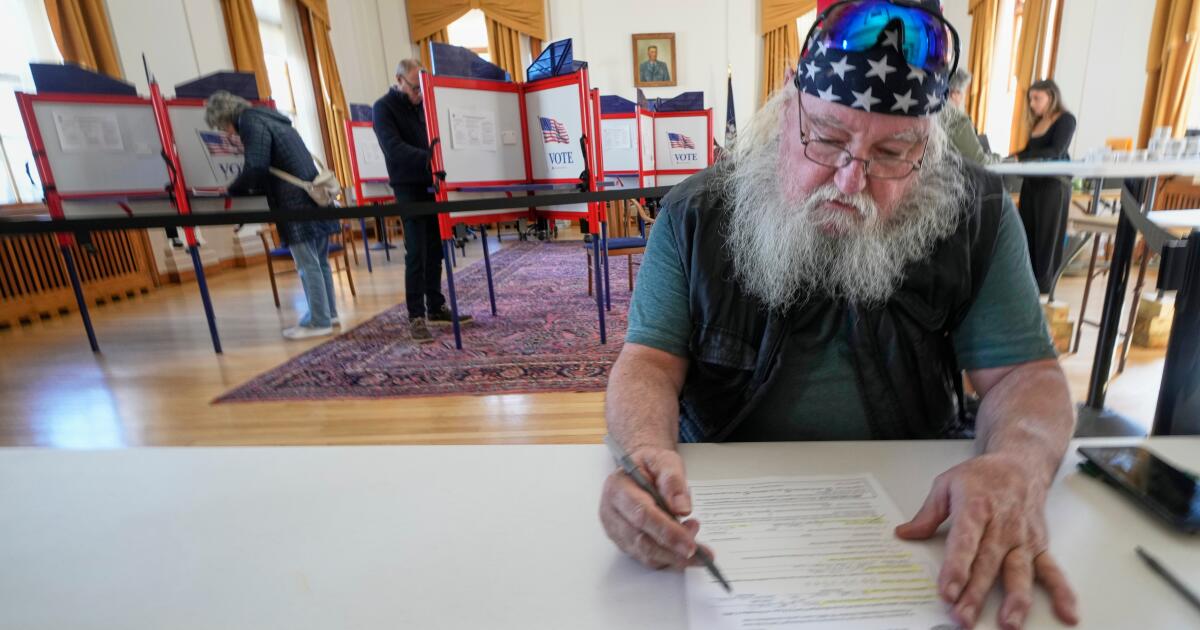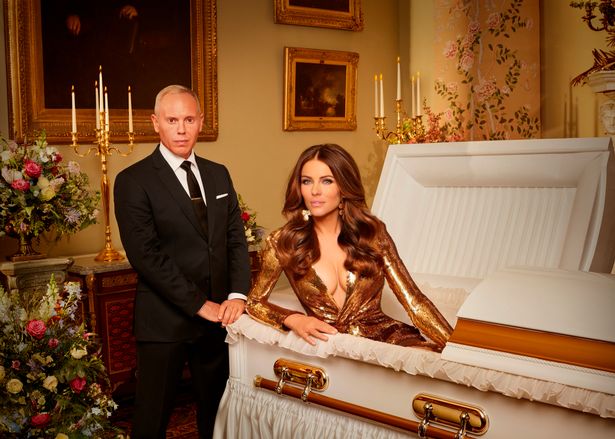PORTLAND, Maine — Maine’s elections in recent years have been relatively free of problems, and verified cases of voter fraud are exceedingly rare.
That’s not stopping Republicans from pushing for major changes in the way the state conducts its voting.
Maine is one of two states with election-related initiatives on the Nov. 4 ballot but is putting the most far-reaching measure before voters. In Texas, Republicans are asking voters to make clear in the state constitution that people who are not U.S. citizens are ineligible to vote.
Maine’s Question 1 centers on requiring voter ID, but is more sweeping in nature. The initiative, which has the backing of an influential conservative group in the state, also would limit the use of drop boxes to just one per municipality and create restrictions for absentee voting even as the practice has been growing in popularity.
Voters in both states will decide on the measures at a time when President Trump continues to lie about widespread fraud leading to his loss in the 2020 presidential election and make unsubstantiated claims about future election-rigging, a strategy that has become routine during election years. Republicans in Congress and state legislatures have been pushing for proof of citizenship requirements to register and vote, but with only limited success.
Maine’s initiative would impose voter ID, restrict absentee voting
The Maine proposal seeks to require voters to produce a voter ID before casting a ballot, a provision that has been adopted in several other states, mostly those controlled by Republicans. In April, Wisconsin voters enshrined that state’s existing voter ID law into the state’s constitution.
Question 1 also would eliminate two days of absentee voting, prohibit requests for absentee ballots by phone or family members, end absentee voter status for seniors and people with disabilities, and limit the number of drop boxes, among other changes.
Absentee voting is popular in Maine, where Democrats control the Legislature and governor’s office and voters have elected a Republican and an independent as U.S. senators. Nearly half of voters there used absentee voting in the 2024 presidential election.
Gov. Janet Mills is one of many Democrats in the state speaking out against the proposed changes.
“Whether you vote in person or by absentee ballot, you can trust that your vote will be counted fairly,” Mills said. “But that fundamental right to vote is under attack from Question 1.”
Proponents of the voter ID push said it’s about shoring up election security.
“There’s been a lot of noise about what it would supposedly do, but here’s the simple truth: Question 1 is about securing Maine’s elections,” said Republican Rep. Laurel Libby, a proponent of the measure.
A key supporter of the ballot initiative is Dinner Table PAC, a conservative group in the state. Dinner Table launched Voter ID for ME, which has raised more than $600,000 to promote the initiative. The bulk of that money has come from the Republican State Leadership Committee, which advocates for Republican candidates and initiatives at the state level through the country. Save Maine Absentee Voting, a state group that opposes the initiative, has raised more than $1.6 million, with the National Education Assn. as its top donor.
The campaigning for and against the initiative is playing out as the state and FBI are investigating how dozens of unmarked ballots meant to be used in this year’s election arrived inside a woman’s Amazon order. The secretary of state’s office says the blank ballots, still bundled and wrapped in plastic, will not be used in the election.
Texas voters consider a citizenship requirement
In Texas, voters are deciding whether to add wording to the state constitution that Republican Gov. Greg Abbott and other backers said would guarantee that noncitizens will not be able to vote in elections there. State and federal laws already make it illegal for noncitizens to vote.
Thirteen states have made similar changes to their constitutions since North Dakota first did in 2018. Proposed constitutional amendments are on the November 2026 ballot in Kansas and South Dakota.
The measures have so far proven popular, winning approval with an average of 72% of the vote.
“I think it needs to sweep the nation,” said Republican state Rep. A.J. Louderback, who represents a district southwest of Houston. “I think we need to clean this mess up.”
Voters already have to attest they are U.S. citizens when they register, and voting by noncitizens, which is rare, is punishable as a felony and can lead to deportation.
Louderback and other supporters of such amendments point to policies in at least 20 communities across the country that allow noncitizens to vote in local elections, though none are in Texas. They include Oakland and San Francisco, where noncitizens can cast ballots in school board races if they have children in the public schools, the District of Columbia, and several towns in Maryland and Vermont.
Other states, including Kansas, have wording in their constitutions putting a citizenship requirement in affirmative terms: Any U.S. citizen over 18 is eligible to vote. In some states, amendments have rewritten the language to make it more of a prohibition: Only U.S. citizens are eligible to vote.
The article on voting in the Texas Constitution currently begins with a list of three “classes of persons not allowed to vote”: people under 18, convicted felons and those “who have been determined mentally incompetent by a court.” The Nov. 4 amendment would add a fourth, “persons who are not citizens of the United States.”
Critics say the proposed changes are unnecessary
Critics say the Maine voter ID requirement and Texas noncitizen prohibition are solutions in search of a problem and promote a longstanding conservative GOP narrative that noncitizen voting is a significant problem, when in fact it’s exceedingly rare.
In Texas, the secretary of state’s office recently announced it had found the names of 2,700 “potential noncitizens” on its registration rolls out of the state’s nearly 18.5 million registered voters.
Veronikah Warms, staff attorney at the Texas Civil Rights Project, said pushing the narrative encourages discrimination and stokes fear of state retaliation among naturalized citizens and people of color. Her group works to protect the rights of those groups and immigrants and opposes the proposed amendment.
“It just doesn’t serve any purpose besides furthering the lie that noncitizens are trying to subvert our democratic process,” she said. “This is just furthering a harmful narrative that will make it scarier for people to actually exercise their constitutional right.”
In Maine, approval of Question 1 would most likely make voting more difficult overall, said Mark Brewer, chair of the University of Maine political science department. He added that claims of widespread voter fraud are unsupported by evidence.
“The data show that the more hoops and restrictions you put on voting, the harder it is to vote and the fewer people will vote,” he said.
Whittle and Hanna write for the Associated Press. Hanna reported from Topeka, Kan.




